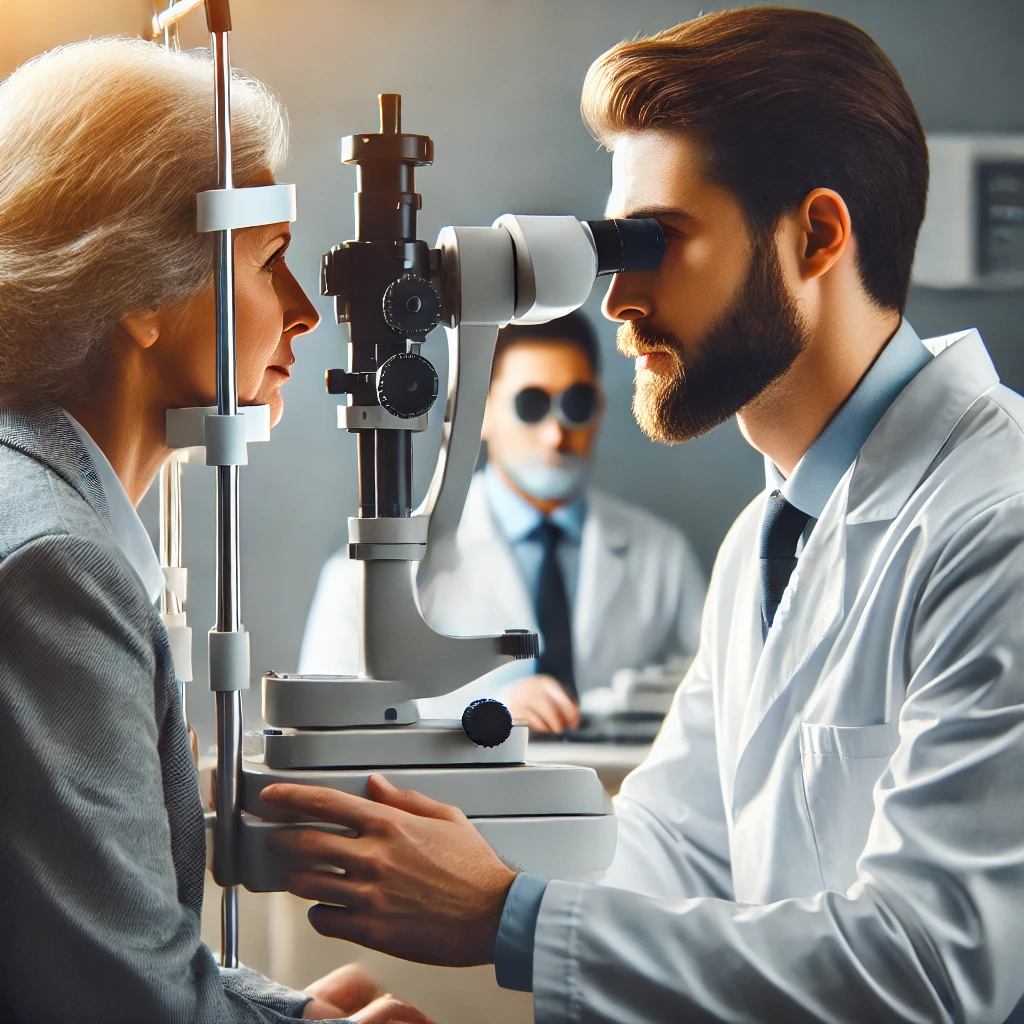Ophthalmology: Enhancing Vision, Improving Lives
Ophthalmology is the branch of medicine focused on the diagnosis, treatment, and prevention of eye disorders and diseases. It covers a wide range of conditions, including cataracts, glaucoma, retinal disorders, and refractive errors. With advancements in technology, modern ophthalmology offers innovative solutions such as laser treatments, minimally invasive surgeries, and AI-powered diagnostics.
Benefits of Ophthalmology
Improved Vision: Corrects refractive errors and prevents vision loss.
Early Disease Detection: Helps diagnose conditions like glaucoma and diabetic retinopathy before they worsen.
Advanced Treatments: Offers cutting-edge solutions like LASIK, cataract surgery, and retinal procedures.
Better Quality of Life: Enhances overall well-being by preserving and restoring eyesight.
Key Features of Ophthalmology
Comprehensive Eye Care: Covers everything from routine eye exams to complex surgeries.
State-of-the-Art Technology: Includes laser-assisted surgeries, AI-based diagnostics, and robotic-assisted procedures.
Preventive Care: Encourages early screenings for age-related and hereditary eye diseases.
Multidisciplinary Approach: Integrates optometry, neurology, and systemic disease management for holistic care.
With continuous advancements, ophthalmology plays a crucial role in maintaining optimal eye health and improving the lives of millions worldwide.
#Ophthalmology #EyeCare #VisionHealth #AdvancedEyeCare #EyeExams #LaserTreatment #RetinaCare #EyeHealth #MedicalInnovation #HealthcareTechnology
Ophthalmology is the branch of medicine focused on the diagnosis, treatment, and prevention of eye disorders and diseases. It covers a wide range of conditions, including cataracts, glaucoma, retinal disorders, and refractive errors. With advancements in technology, modern ophthalmology offers innovative solutions such as laser treatments, minimally invasive surgeries, and AI-powered diagnostics.
Benefits of Ophthalmology
Improved Vision: Corrects refractive errors and prevents vision loss.
Early Disease Detection: Helps diagnose conditions like glaucoma and diabetic retinopathy before they worsen.
Advanced Treatments: Offers cutting-edge solutions like LASIK, cataract surgery, and retinal procedures.
Better Quality of Life: Enhances overall well-being by preserving and restoring eyesight.
Key Features of Ophthalmology
Comprehensive Eye Care: Covers everything from routine eye exams to complex surgeries.
State-of-the-Art Technology: Includes laser-assisted surgeries, AI-based diagnostics, and robotic-assisted procedures.
Preventive Care: Encourages early screenings for age-related and hereditary eye diseases.
Multidisciplinary Approach: Integrates optometry, neurology, and systemic disease management for holistic care.
With continuous advancements, ophthalmology plays a crucial role in maintaining optimal eye health and improving the lives of millions worldwide.
#Ophthalmology #EyeCare #VisionHealth #AdvancedEyeCare #EyeExams #LaserTreatment #RetinaCare #EyeHealth #MedicalInnovation #HealthcareTechnology
Ophthalmology: Enhancing Vision, Improving Lives
Ophthalmology is the branch of medicine focused on the diagnosis, treatment, and prevention of eye disorders and diseases. It covers a wide range of conditions, including cataracts, glaucoma, retinal disorders, and refractive errors. With advancements in technology, modern ophthalmology offers innovative solutions such as laser treatments, minimally invasive surgeries, and AI-powered diagnostics.
Benefits of Ophthalmology
Improved Vision: Corrects refractive errors and prevents vision loss.
Early Disease Detection: Helps diagnose conditions like glaucoma and diabetic retinopathy before they worsen.
Advanced Treatments: Offers cutting-edge solutions like LASIK, cataract surgery, and retinal procedures.
Better Quality of Life: Enhances overall well-being by preserving and restoring eyesight.
Key Features of Ophthalmology
Comprehensive Eye Care: Covers everything from routine eye exams to complex surgeries.
State-of-the-Art Technology: Includes laser-assisted surgeries, AI-based diagnostics, and robotic-assisted procedures.
Preventive Care: Encourages early screenings for age-related and hereditary eye diseases.
Multidisciplinary Approach: Integrates optometry, neurology, and systemic disease management for holistic care.
With continuous advancements, ophthalmology plays a crucial role in maintaining optimal eye health and improving the lives of millions worldwide.
#Ophthalmology #EyeCare #VisionHealth #AdvancedEyeCare #EyeExams #LaserTreatment #RetinaCare #EyeHealth #MedicalInnovation #HealthcareTechnology










